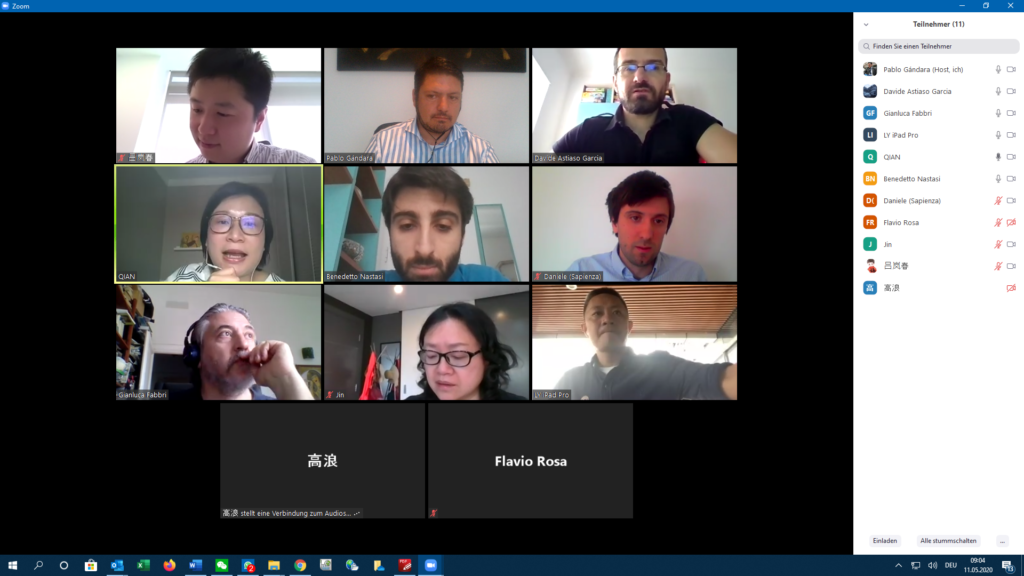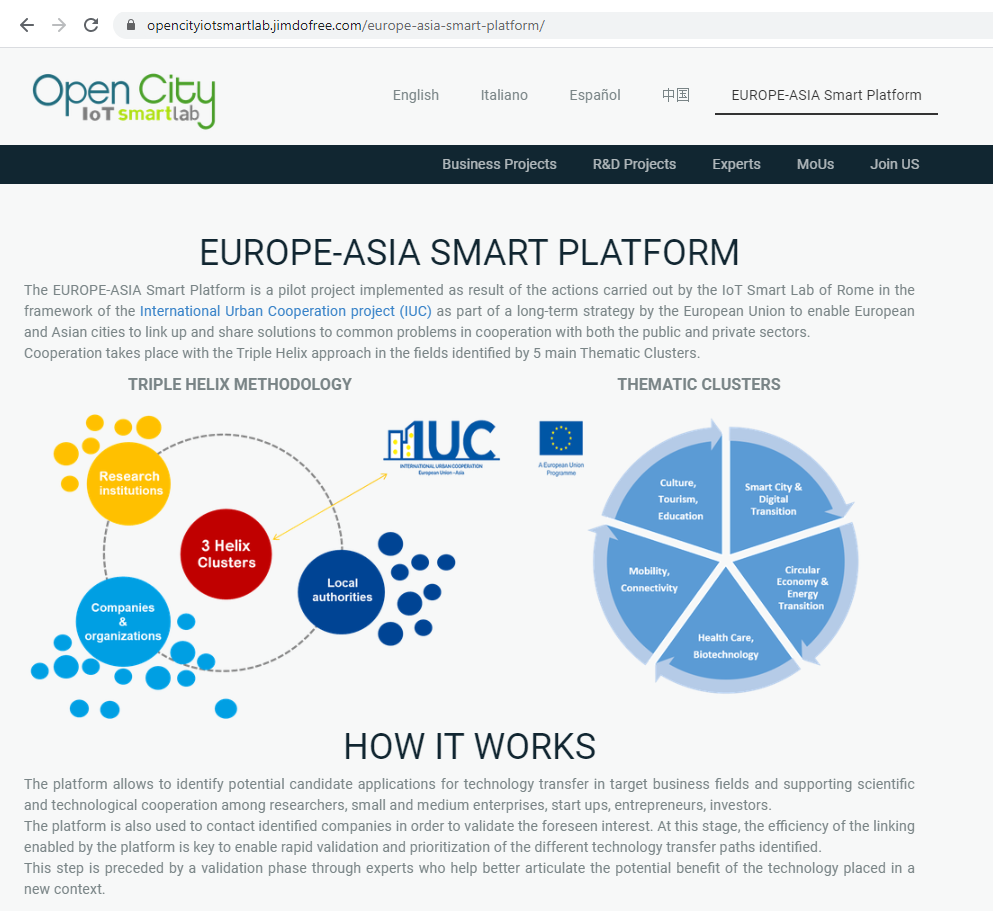Experts from Sichuan Energy Internet Research Institute (EIRI) at Tsinghua University, University Sapienza CITERA (Interdepartmental Center for Territory, Building, Restoration, Environment), Sapienza’s Department of Planning, Design, and Technology of Architecture, the Renewable Energy Association FREE and the IoT Smart City Lab of Rome held an online webinar to develop concrete research and start-up incubation activities in the renewable energy area. Researchers from both sides shared experiences in relevant areas including Integrated Energy Systems, Power to Gas, and Electrifying the Heat Sector.
Italian experts showcased outcomes PRISMI, an EU funded project dealing with integrated energy systems in islands. They also introduced the EU-funded GIFT project which analyses sector coupling solutions and future scenarios based on high Renewable Energy Sources (RES) share and Demand Side Management (DSM) solutions to optimally manage the energy system and support the DSO in the grid management. Regarding power-to-gas, Rome experts referred to studying the use of hydrogen in the transport sector (Favignana island) and in the introduction of hydrogen in the gas network so as to use the infrastructure that is already in place in Italy and reduce the greenhouse gas emissions. With regard to clean heating, they discussed low-temperature district heating networks to be coupled with the wide use of heat pumps (HPs) as a means to adopt power-to-heat solutions. The use of low-temperature district heating assures a high-efficiency system with little heat losses along the pipes while several HPs enable to raise the fluid temperature and to adopt power-to-heat solutions and to store the excess energy in thermal energy storages fully exploiting the sector coupling concept by using multi-vector storages.
Chinese experts introduced own research experience in Integrated Energy Systems, including the on-line simulation CloudPSS tool. They introduced to European colleagues many opportunities in Chengdu with regard to Power to Gas and on Electrifying the Heat Sector. The Energy Internet Research Institute (EIRI) experts introduced achievements in R&D, including the scientific support to building the 1st Multi-Voltage Level & Multi-Terminal Direct Current (DC) Distribution Grid in China, the development of China’s 1st Robot Inspection Technology Used in Large Hydropower Station Flood Tunnels and the development of the 1st 500kV GIS VFTO Online Monitoring Inspection System in the World. They introduced other collaboration areas, including the incubation of start-ups. EIRI experts introduced the Energy Internet X Plan, between research grant projects and start-up incubators. The aim of this plan is to help researchers achieve commercialisation of new scientific research. EIRI invited colleagues from Rome, including the IoT Smart City Lab of Rome, to develop concrete cooperation programmes among start-ups. The IoT Smart City Cluster introduced the European-Asian Smart City Platform to support self-sustaining thematic exchange.
With regards to research, experts aim to collaborate in the analysis of different scenarios for the future energy system of Chengdu and propose the optimal size of renewable energy sources generators. The also discussed identifying the best options in terms of power-to-X solutions (e.g. electrification of the transport and thermal sectors, the use of power-to-gas solutions, etc.). Collaboration might lead to a study to be published in a highly ranked scientific journal and to disseminate results in conferences. Research should then lead to deploying European solutions in China and vice-versa.













